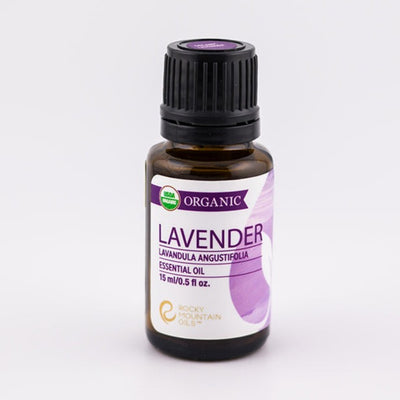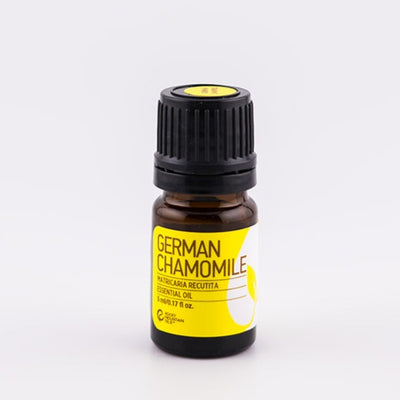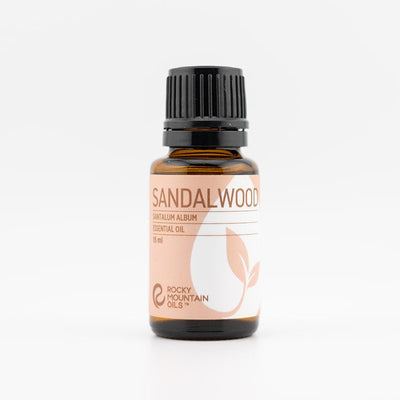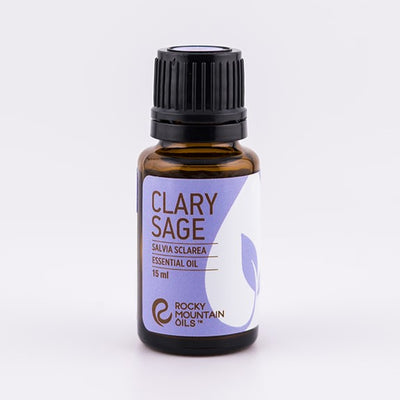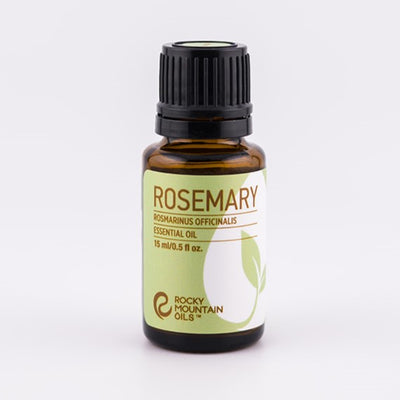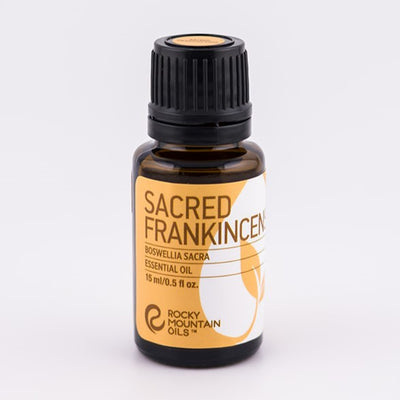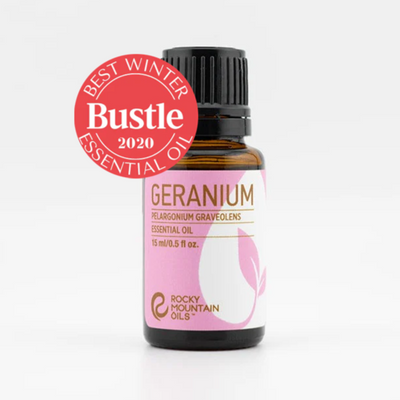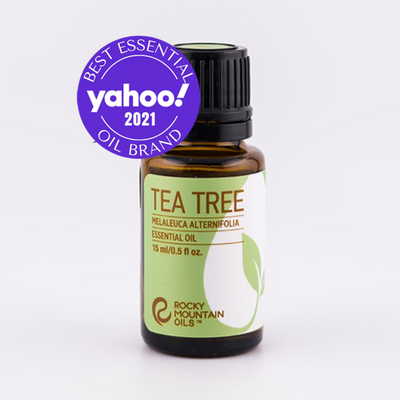Guide To Using Essential Oils For Skin
Essential oils for skin can help you look and feel your best. In today’s world, our skin is often vulnerable to damage from too much sun exposure, environmental pollutants, and the harsh chemicals present in traditional skincare and beauty products. Factors like diet, stress, and hormones may also play a role in our skin’s health and appearance. By using the best essential oils for skin, you can achieve a clearer, brighter, more youthful complexion naturally.
Whether you’re simply curious or already committed to switching to 100% natural products, you’ll find essential oils to help with your skincare goals. Essential oils for skin can help with acne, hormonal breakouts, scarring, fine lines and wrinkles, oily skin, dry skin, discoloration, sun damage, and more. You can try convenient, prediluted roll-ons or purchase various different oils to make a custom blend for your unique skincare needs.
So where should you begin? In this guide to using essential oils for skin (including essential oils for sensitive skin) we’ll cover all the basics you need to know to use essential oils safely and effectively. We’ll also share our recommendations for the best essential oils for dry skin, sensitive skin, skin tags, skin glow, and more.
Safety First: How to Dilute & Patch Test Essential Oils
Essential oils are a great alternative to traditional products because they don’t contain any artificial ingredients or harsh chemicals that may irritate the skin. However, you still need to be cautious when applying essential oils onto your skin – especially the delicate, more sensitive skin on your face.
This is because essential oils are highly concentrated. They contain plant compounds in their purest, most potent form. While these pure oils offer many healing benefits, sometimes they may cause irritation when exposed directly to the skin. Certain essential oils may also begin to evaporate before your skin can fully absorb them, which means they won’t be as effective.
So how can you use essential oils for skin safely and effectively? Carrier oils!
A carrier oil (also known as a base oil) is a gentle, skin-safe oil or liquid wax ester that’s used to dilute other essential oils for use on the skin. Carrier oils are deeply hydrating emollients, which help soften and smooth skin. They also fill the lipid barrier between cells to help your complexion appear more fuller and more youthful.
Carrier oils generally have a very subtle aroma that blends into the background of other essential oils, so they’re also perfect for topical aromatherapy like chest rubs and massage oils.
Also Read - 21 Essential Oils For Skin Care Aromatherapy
Popular carrier oils for skin include:
- Fractionated Coconut Oil (FCO)
- Jojoba Oil
- Argan Oil
- Almond Oil
When you’re using essential oils for face serums, makeup removers, toners, or other DIY products, you’ll need to choose a carrier oil and use it to dilute your other essential oils.
Diluting essential oils in a carrier oil helps prevent the sensitivity or irritation that is sometimes caused by using pure oil. It also prevents evaporation, enhances absorption, and allows you to extend the life of your other essential oils. For most skincare purposes, you’ll only need a few drops of pure oil within the carrier oil dilution. To learn more about diluting essential oils, check out our Dilution Rate Guide.
After you’ve diluted your essential oils for skin, you’re almost ready to use them. There’s just one more step: a patch test. A patch test means applying a tiny amount of oils onto a small “patch” of skin, such as the inner forearm, then waiting at least 15 minutes to see if irritation or allergic reaction occurs.
We recommend patch testing every new essential oil blend or product before extensive, continuous use on skin. If you are extra sensitive, remember you can always add extra carrier oil to dilute your essential oil skincare further.
Finally, make sure you never use essential oils on mucous membranes and avoid getting too close to the eyes, insides of the ear, insides of the nose, and mouth. While many essential oils are useful for healing small wounds and bug bites, be cautious using oils on broken skin and discontinue use if redness or irritation occurs. Always consult your doctor if you have medical concerns.
How To Use Essential Oils for Skin

When you’re ready to use essential oils on skin, wash your face with a gentle, natural cleanser. Then apply oils as needed. Some of our favorite ways to use essential oils on skin include:
Facial Rollers
Often made from jade, rose quartz, or other crystals and precious stones, facial rollers allow you to use gentle yet firm pressure as you apply essential oils to skin. This can help you feel more relaxed, reduce puffiness, improve blood flow, and promote lympathic drainage. Simply apply your essential oil blend to the face, then roll as needed starting from the center of your face moving outward.
Cotton Pads
For toners, serums, and makeup removers, apply 3-4 drops of properly diluted essential oils to a clean cotton pad. Then, use the pad to wipe away excess grime, oil, foundation, or moisturizers. Repeat as necessary. Cotton pads can also be used when you’re applying essential oils for skin glow to treat blemishes like acne, as well as skin conditions such as eczema or psoriasis.
Face Masks
Some essential oils may provide greater benefits when allowed to absorb for longer periods of time in a deep moisturizing face mask. When making a DIY face mask, you may wish to use a carrier oil with a thicker texture, such as FCO. Apply the face mask to skin with clean hands or an applicator tool, massage into the skin, then leave on for 15-20 minutes. Rinse and pat dry to reveal fresh, hydrated, glowing skin.
The Best Essential Oils for Skin That Glows
When it comes to choosing the best essential oils for skin, there’s no “one size fits all.” Everyone has different skincare needs. Your needs may also vary depending on which area you’d like to treat, as many individuals have combination skin that’s prone to oiliness in some spots and dryness in other spots.
However, we’ve compiled some of the most popular oils for use on skin in the sections below. While this isn’t an exhaustive list, these essential oils are a great place to start when you’re looking for cleaner, healthier, more vibrant skin without harsh chemicals.
Essential Oils for Dry Skin
Dry skin is often exacerbated by cold or windy weather, age, hormones, or over-use of skincare products that strip away the skin’s natural oil. Also known as sebum, the oil produced by our skin is an important barrier to protect us against irritants and germs. Dry skin can be itchy, painful, and worsen the appearance of fine lines and wrinkles or other damage.
The best essential oils for dry skin possess anti-inflammatory properties as well as natural antioxidant compounds that help soothe redness and balance skin’s pH levels. Some of our favorite oils for dry skin include:
Lavender Essential Oil
- Anti-inflammatory, reduces redness
- Helps balance moisture levels
- Antimicrobial properties that help heal cracked skin
Chamomile Essential Oil
- Contains azulene for reducing inflammation
- Helps hydration penetrate deeper into skin cells
- Antioxidants in chamomile promote healing
Sandalwood Essential Oil
- Naturally astringent yet moisturizing
- Calms redness and irritation
- Helps exfoliate and clear dry, flaky, or dead skin
Essential Oils for Oily Skin
Although a certain amount of natural oil is good for our skin, too much oil can lead to clogged pores, whiteheads and blackheads, acne, and other blemishes. Oily skin can also have a greasy or unhygienic appearance and interfere with makeup and other daily skincare products.
Oily skin has many causes, including diet, hot or humid weather, and hormones. Ironically, excess oil can also occur as a result of over-washing or using products with alcohol or other harsh ingredients. When your natural sebum is stripped away, the skin often produces too much oil to compensate. Some of our favorite oils for oily skin include:
Clary Sage Essential Oil
- Contains bioactive compounds: linaly acetate and geranyl
- Great natural toner that may also reduce appearance of wrinkles
- Helps control acne and breakouts
Rosemary Essential Oil
- Naturally astringent and anti-inflammatory
- Contains natural esters that balance sebum
- Analgesic properties help soothe painful blemishes
Sacred Frakincense Essential Oil
- Powerful natural toner that brightens skins
- Astringent properties control sebum production
- May also shrink appearance of pores
Geranium Essential Oil
- Soothes and heals irritation
- Helps reduce acne and eczema
- Balances skin’s natural pH chemistry and controls oil
- Naturally anti-inflammatory and astringent
- Helps treat redness and heal irritation
- Also one of the best essential oils for skin tags
Try DIY Skincare with Essential Oils
No matter your age, gender, or skin type, you can enhance your skincare routine by using essential oils. Experience the transformative benefits of plants with DIY blends or try Rocky Mountain Oils’ skincare essential oils today.
Now you have basic ideas of using essential oils for skin, you can explore more about skincare with these guides -


